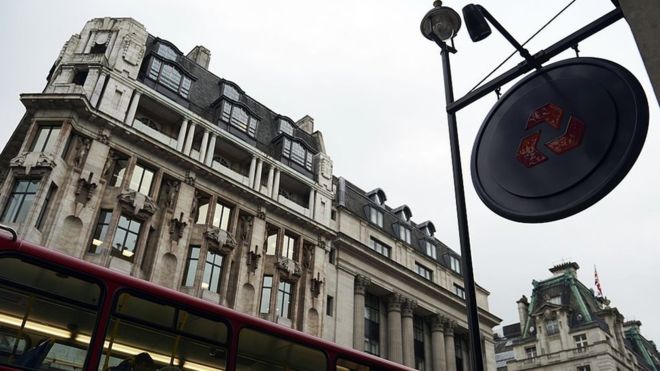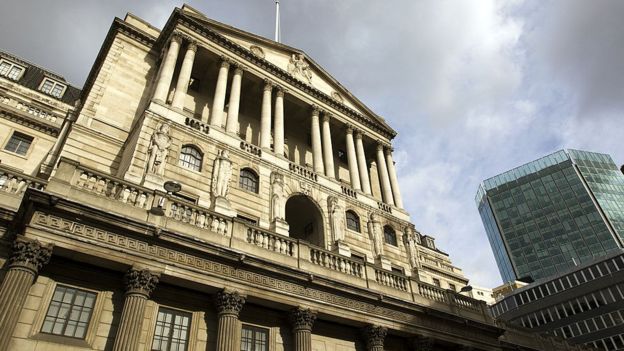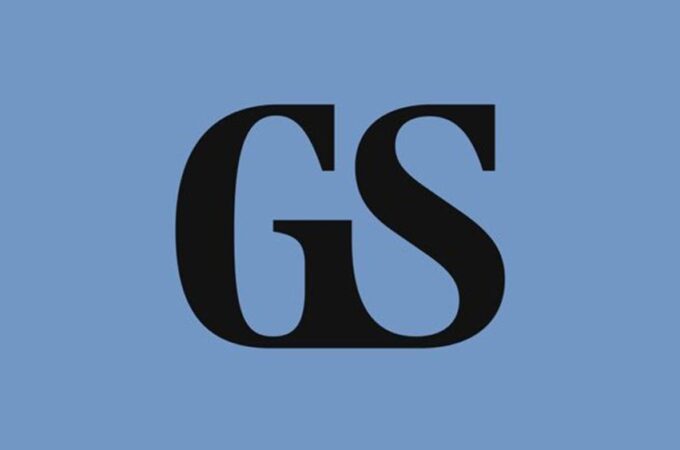
NatWest and RBS may charge firms to hold deposits
By BBC
NatWest and Royal Bank of Scotland (RBS) have warned businesses they may have to charge them to accept deposits due to low interest rates.
The move, if enacted, would make them the first UK banks to introduce negative interest rates, in effect, charging to deposit money.
“Global interest rates remain at very low levels… this could result in us charging interest on credit balances,” it wrote in a letter to customers.
Personal customers are not affected.
A spokesperson for Royal Bank of Scotland, which owns NatWest, told the BBC the letter was sent to just under 1.3 million of the combined business and commercial customers of the two banks.
“We will consider any necessary action in the event of the Bank of England base rate falling below zero, but will do our utmost to protect our customers from any impacts,” they said.
Jack: The weird world of negative interest rates
 Image copyrightGETTY IMAGES
Image copyrightGETTY IMAGES‘Deeply concerning’
The Federation of Small Businesses, which has 170,000 members, called on other banks to update customers of any changes to their Business Current Account (BCA) “during this uncertain economic period”.
Mike Cherry, National Chairman at the Federation of Small Businesses (FSB), said the warning from Natwest and RBS “will be deeply concerning to small firms”.
The FSB also urged the Bank of England to consider the impact on smaller firms of cutting interest rates.
Mike Amey, a managing director at investment firm Pimco, said the two banks were “giving themselves wiggle room in the very unlikely event” that the Bank turns the official interest rate negative.
“The Bank of England sets the interest rate next week, so the fact they put this out this week… is possibly a bit of a reminder to the Bank of England there are negative consequences,” he told the BBC.
‘Easing’
UK interest rates have been unchanged since the Bank of England cut them to a record low of 0.5% in March 2009 at the height of the financial crisis.
The Bank kept them on hold earlier this month, despite speculation it would cut rates further.
But Bank governor Mark Carney has said it is likely “some monetary policy easing” will be required to boost the UK economy in response to the Brexit vote.
However, he has said he does not favour rates falling any lower than 0.25%.
Nevertheless, some economists believe that rates could still be cut to zero or lower later this year.
When the rate goes below zero, the normal relationship between banks and customers is reversed. Instead of the lender getting paid interest by the bank for allowing it to use their money, the lender has to pay the bank for holding their money.
The underlying idea is much the same as cutting interest rates in more normal times. The aim is to encourage more borrowing and spending by firms and less saving.
In 2014, the European Central Bank was the first major central bank to introduce negative interest rates, with the aim of encouraging banks to lend to businesses rather than hold on to money.
First appeared at BBC





